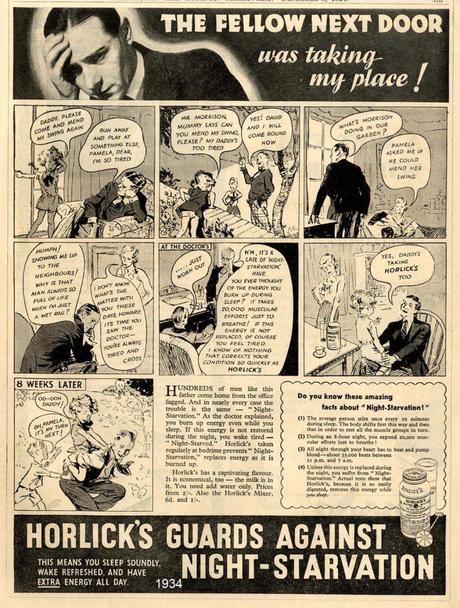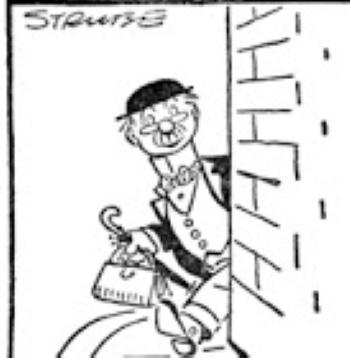Book review by George S: Patrick Hamilton is well known as the chronicler of the seedier side of London - the run-down boarding houses and the dubious pubs. It's a surprise, then, to find him writing the story of a journey to another planet - a book that at first promises to be Science Fiction. But writing about other worlds in the future is for most writers just another way of writing about this present world and its imperfections, and Hamilton is definitely no exception to this rule. Like most of his other books this is a scathing account of the values of thirties Britain. It is also good fun.
The Science Fiction element is extremely perfunctory. Where a serious writer in the genre would take pains to explain how his hero was transported to another planet, Hamilton just tells us that explanations are unnecessary:
There have been so many thousands of descriptions of the Asteradio, and so many photographs and drawings of it published in the Press, that it would be idle for me to add anything of that sort here. The superficial appearance of this extraordinary piece of mechanism - if 'mechanism' is a legitimate word - resembling, as it always does to me, a sort of mad cross between a telephone booth, a cabinet gramophone, an electric chair, a lift, a wardrobe mirror, an Iron Maiden and a huge camera - is as well known to any man in the street as it is by myself.
The Ateradio is a sort of 'Beam-me-Up Scotty' kind of teleportation. The process is uncomfortable, but the novel's hero, John Sadler, lands safely on the planet of Moribundia, which is very like England. So like England indeed that when he arrives, he finds himself on the outskirts of a cricket pitch. But this is an England somehow different. It seems perfect, ideal. Much more English indeed than real English life:
To one accustomed to the lean, lanky, pimpled, and somewhat smutty appearance of the average public-school boy in England, there was an air of sunburned masculinity about each of these boys I was now looking at - of handsome muscular earnestness, of lissom gracefulness, of blue-eyed burning idealism, of manly fortitude, of disciplined (above all, disciplined) perfection, which simply took one's breath away. Gazing intently at the game, with their eager profiles presented to me, they seemed a set of young dreaming Raleighs. And indeed, it was clear enough that, in looking at the game, they were seeing something more than a mere game - they were looking into their own future, imbibing lessons of sportsmanship, self-sacrifice, and courage which would certainly serve them in good stead in the battle of life ahead."
in other words, this cricket match is exactly what we all imagine a cricket match ought to be. Sadler becomes aware of a 'breathless hush', because there's an hour to play and the last man in, and ten to make and the match to win.. But it would seem that every cricket match in Moribundia is exactly like the one Newbolt imagined in Vitai Lampada, with the captain smiting the youngster on the shoulder and telling him to 'Pay Up! Play Up! and play the game!''
Moribundia turns out to be "the land of ideals made concrete". It is every cliché and stereotype of how the middle classes of England complacently imagine their country to be, made super-real. In the actual England that Sadler has left behind, for example, gentlemen's clubs are dull places, full of mediocre men reading newspapers. In Moribundia, they are full of , and above all, explorers who live up to every cliché ever written by John Buchan or Rider Haggard:
These last characters [...] are, perhaps, the most imposing characters of all in Moribundian clubs, with their 'lean' bodies, 'tanned' faces, 'whipcord physique' and reserved and steely demeanour. I myself was always slightly afraid of them, as they gave me the impression of knowing almost everything. I knew for a fact that they could speak innumerable foreign languages, including the different subdialects thereof (which they could imitate to perfection), and the quantity and quality of their contacts, both at home and abroad, were to me curiously terrifying - it being nothing for one of them to carry on negotiations at one and the same time with, say, 'a little Jew tailor in Belgrade', 'a deaf spectacle-maker in Lima', 'an old woman in a Finnish hut', 'a blind armature-winder in an Estonian ghetto', 'a consumptive professor of Oriental languages in a lesser-known French University', 'a half-paralysed watch-mender in Glasgow', 'a dumb porter in a Swedish brothel', etc., etc. (I am, of course, substituting worldly place-names for the Moribundian.) I think the feeling of fright I had arose from the fact that this far-flung, yet microscopically accurate diversity of information was too closely akin to that possessed by God, who knows, we have been told, whenever the smallest sparrow falls from a tree.
These clubmen, like the cricketers, are examples of the akkup bihas. (To understand Moribundian, you have to read the words backwards. You get used to it.) There is also "another class, the Gnikrow class, which was characterized by a somewhat detestable shortness and round-shouldered squatness."
At one point Sadler goes to live with a Gnikrow class family, who conform precisely to all the standard middle-class perceptions of their inferiors. The men would rather take handouts than work. The daughter who is a servant rules and terrorises her employers, without any consideration for their well-being. The daughter who works in a munitions family is amazingly rich and arrogant. The family has plenty of money, which they spend on grand pianos which are routinely chopped up for firewood (and this despite the fact that they have, of course, plenty of coal stored in the bath). Their existence puzzles Sadler:
The reader may, however, be permitted to ask how and why it has come about that, in an ideal, a perfect land, so useless, predatory and wasteful a class should be allowed to exist. This is a difficult question to answer, and my own theory is one that alludes again to this ever-present problem of change. In my own view these people are allowed to exist as a sort of moral example, a visual and living proof of the danger and absurdity of making any radical change in the social system, of giving any further privileges to, or in any way trying to better the conditions of, the working people.
The crucial belief of the Moribundians is that society is what it is, and can never change@
"However inadequately I have portrayed Moribundia so far, I think I have at least made it clear that [T]he Moribundian, by his nature, is incapable of entertaining [...] the thought that there may be any conceivable world of things and ideas other than his own. Merely to mention, let alone to propound, such a theory in public, would be to be regarded as a madman, or worse perhaps, a Tsixram."
In the late thirties Hamilton was himself a supporter of the Communist Party, and this book can be read as an attack on the false consciousness of the middle classes. It shows how far their ideas about their country are from the reality, and how their myths of an eternal unchangeable England get in the way of any social progress. Moribundia, he is suggesting, is the middle-class Englishman's idea of Utopia. For Hamilton it is horribly dystopian. Unlike many writers of dystopia, however, he does not lay on the horrors thickly. He is more interested in pointing out absurdities, and in having fun at the expense of his fellow-citizens.
Much of the book is a satire on the ridiculousness of the world as depicted in advertisements - especially in the comic-strip style of advert that was very popular in the thirties, like this one for Horlicks.

Sadler is diconcerted at first when he sees speech bubbles popping out of people's heads, complaining of some illness, weakness or social anxiety. Inevitably, some friend will hand the afflicted person a patent medicine or night-time drink, and immediately their problems are solved. All Moribundians are infinitely credulous and believe the claims of all advertisements, Sadler makes friends with Anne, an attractive young woman, and persuades her to come away with him to the Moribundian equivalent of Brighton. Before she comes to bed, however, she considers it essential to apply all sorts of creams, medicaments and treatments, which are described in some detail.
Some feeble idea will, I hope, by now have been given of the time it took Anne to get to bed, and it will be understood why, when at last she was ready, looking most repulsive in her sleeping helmet, her skin-softening gloves, her chin-moulder, her nose-corrector and shoulder support, I myself was bored to extinction by her and generally fast asleep. There can be no doubt that it was in view of these conditions and circumstances that she had so readily consented to come away with me in the first place.
When Anne's brother hears his sister has been away with Sadler, he knows that it his moral duty to horse-whip Sadler on the steps of his club (This, after all, is what would happen in sensational fiction). Sadler's refusal to be punished infuriates onlookers, who know how the story is supposed to go, and they pursue him. They are all like the Little Man, as envisaged by the cartoonist Strube.

This figure was supposed to be an embodiment of the British virtues, but Hamilton pesents him as embodying all the faults of the narrow-minded, Philistine English:
Instead of the harmless, helpful, friendly, tolerant, duty-doing little business men, it was given to me to see something quite different - all the qualities which the artist Eburts and his admirers were unable to see. I saw cupidity, ignorance, complacence, meanness, ugliness, short-sightedness, cowardice, credulity, hysteria and, when the occasion called for it, as it did now, cruelty and blood-thirstiness. I saw the shrewd and despicable cash basis underlying that idiotic patriotism, and a deathly fear and hatred of innovation, of an overturning of their system, behind all their nauseatingly idealistic postures and utterances."
This book is a lot of fun, though it does seem a bit self-indulgent when Hamilton tilts away at easy targets like advertisements and Henry Newbolt (who was surely way out of date by 1939). The satire is a bit too scattergun and jokey. It's not Hamilton at his best - his stiletto-work on English attitudes is much more effective in The Slaves of Solitude, or in the Gorse trilogy. Still, it's a book that Hamilton fans will enjoy, and good enough to while away a few days of dismal lockdown.
